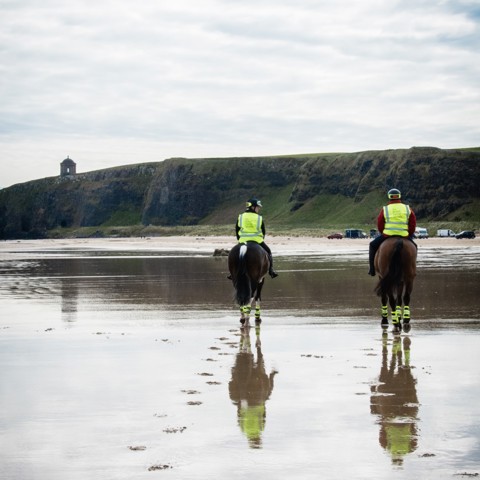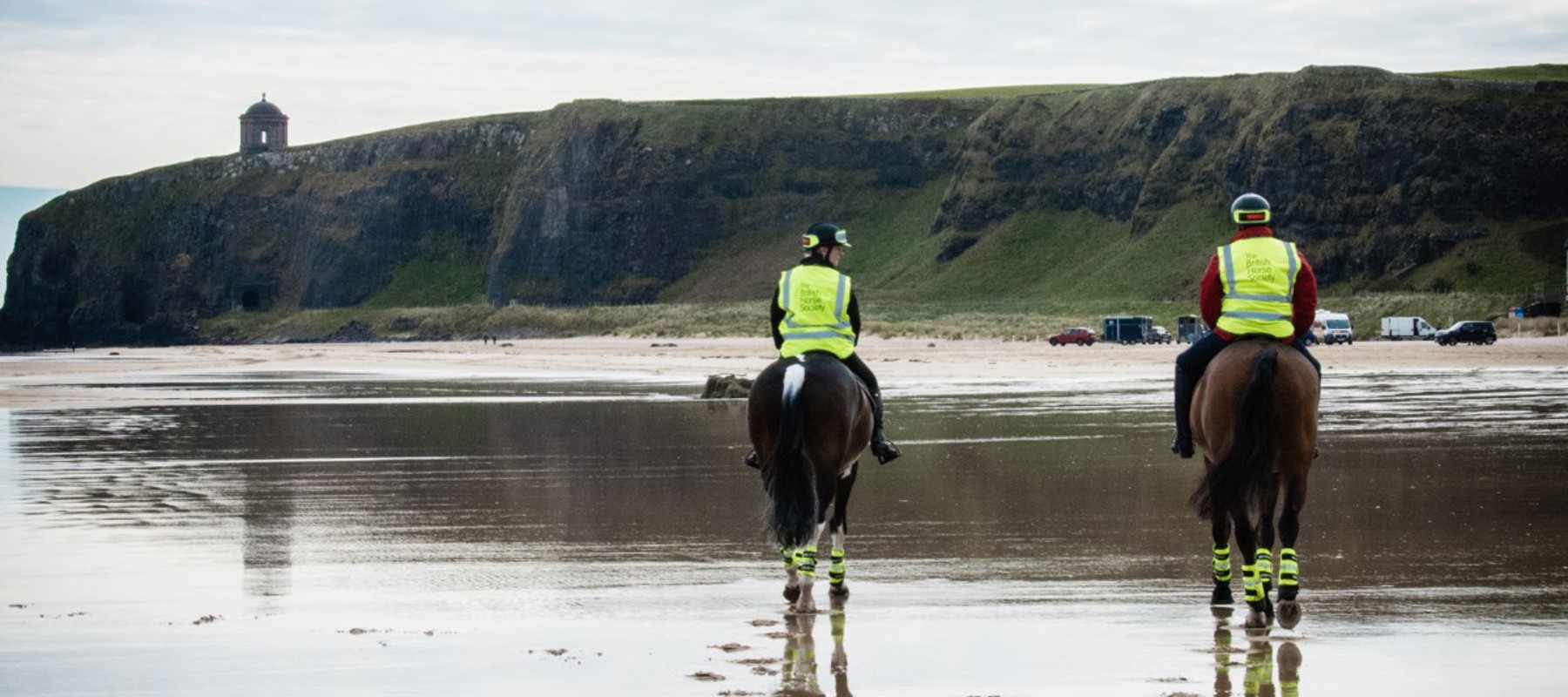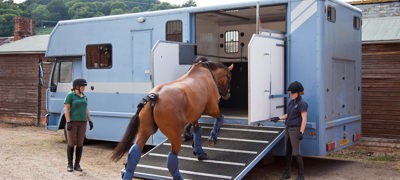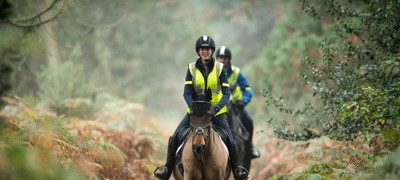Across the UK, many beaches allow horses to be ridden on them, but there are some key legal and safety points you need to know before you go.
What to check before you go
- Is riding on the beach permitted? Find this information on the local authority website or search online for “Can I ride on…” and the beach name
- Check the tide times – this information will be on the website for the beach and on display boards at the beach. Avoid the beach at high tide and be aware of areas that may be cut off by an incoming tide.
- Parking arrangements – note any height restriction barriers that may affect your trailer or horsebox
- Restrictions – riding on the beach might be limited to certain days, times or areas, and there may be bylaws in place
- Boundaries – know where you can ride on the beach. There may be boundaries marked on a map or flags set out on the beach.
At the beach
- Be visible, wear hi-vis
- Always avoid disturbing wildlife and plants, paying particular attention to dunes, salt marshes and estuaries. Many of these areas are for wildlife conservation.
- Respect other beach goers – avoid travelling past others at speed and be aware of families, children, dogs and all other beach users. Be aware of others on the beach and in the water.
- Do not disturb birds feeding at low tide, particularly during adverse weather conditions
Safety at the beach
- Your horse – your horse’s behaviour can be affected. They may find the beach exciting, and if they have not been to the beach before be prepared for how they may react to a new environment. Make sure your tack and equipment is correctly fitted and secure.
- Weather – it is often breezy at the beach. Make sure you dress for the conditions and check the forecast before you go. If you are travelling to the beach in a trailer or horsebox, it can be a good idea to pack a change of clothes.
- Surface conditions – there could be areas of softer sand, debris, holes or other hazards – you need to be able to avoid them. Be aware of sandcastles and deep holes – they can be difficult to spot on the beach. It is sensible to walk where you will ride before proceeding at a trot or canter to check footing is safe for you and your horse.
- Water on the beach – similar to surfaces, check the depth of any standing water on the beach before riding through. Some pools can be deep. Walk unfamiliar beaches on low tide to identify where low-lying coastal rocks are to avoid these if walking or trotting through the sea. Look out for driftwood and items which can move after stormy weather.
- The sea – be cautious of the sea and know if the tide is coming in or going out. Some horses can be nervous of the water and breaking waves. When entering the sea, ride towards it at an angle rather than head on. Horses may spook at the waves. Be aware of the shore under the water – some beaches slope out gradually whereas others shelve steeply or drop off suddenly. Horses have difficulty turning when they swim – so keep this in mind if you venture into deeper water that you can get back to shore safely.
- Dogs – people commonly exercise dogs on the beach. Some dogs can become excitable at the beach or on seeing horses, stay alert and keep to a walk near dogs.
- Other beach visitors – be mindful of others on the beach. They may be walking, families playing or relaxing at the beach. Keep to a walk passing others.
- Aircraft – some beaches are located near to RAF and military training bases, and training flights will often take them out over the sea. Wear high vis at the beach to allow pilots to see you as soon as possible.
- Log any incidents or near misses to BHS
Clean your tack and equipment
Remember to clean your tack and equipment after visiting the beach. Thoroughly remove all sand and salt water, particularly on metal work as it can rust quickly, especially if you visit often or leave salt water on tack.






